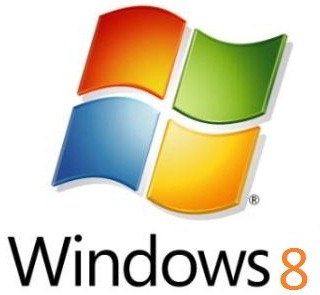While few would argue that Windows 7 was a considerable improvement over its predecessor, Vista, the current version of Microsoft’s desktop operating system still finds itself missing one key feature – it just doesn’t play well with touch. In an interview with AllThingsD’s Ina Fried, Microsoft showed off some of the new touch-inspired improvements in Windows 8, aimed at bringing the operating system a much needed shot in the arm when it comes to taking on Apple’s iOS devices.
The first thing of note to come out of the interview is Windows 8’s new Start screen which bears more than a passing resemblance to Windows Phone 7’s tiles. While not quite WP7’s Metro UI, the similarities are certainly there, with apps being represented by large tiled icons, perfect for stabbing at with a finger.
Once tapped, applications can have two states – in one state the app acts just like any tradition Windows application would, whereas the other state is more like the full-screen mobile apps we’re all used to. Internet explorer 10, apparently, is one app that is designed to run in the latter.
The other type of application, which has to be written in HTML5 and JavaScript, looks more like a mobile application, filling the full screen. Internet Explorer 10, which is part of Windows 8, has already been configured to run in this mode, as have several widget-like apps for checking stock prices and weather.
The eagled-eyed out there will have also spied the ‘Store’ icon in the above screenshot – a sure sign Microsoft intends to take a leaf out of Apple’s book by offering desktop-class applications via its own on-device store. Apple’s Mac App Store, not to mention its iOS store, has been a runaway success since its inception and we see no reason why Microsoft can’t replicate that success for Windows.
Other Windows 8 changes include the new support for ARM processors such as those from NVidia and Qualcomm, meaning tablet devices can take advantage of their low power consumption and still offer Windows 8 instead of Google’s Android. Old stalwarts Intel and AMD will obviously continue to be supported.
Official list of features that were shown off today:
• Fast launching of apps from a tile-based Start screen, which replaces the Windows Start menu with a customizable, scalable full-screen view of apps.
• Live tiles with notifications, showing always up-to-date information from your apps.
• Fluid, natural switching between running apps.
• Convenient ability to snap and resize an app to the side of the screen, so you can really multitask using the capabilities of Windows.
• Web-connected and Web-powered apps built using HTML5 and JavaScript that have access to the full power of the PC.
• Fully touch-optimized browsing, with all the power of hardware-accelerated Internet Explorer 10
Microsoft’s Windows President Steven Sinofsky wouldn’t tell AllThingsD when Windows 8 is expected to ship but we’re sure the Redmond outfit won’t want to let Apple and Google dominate the tablet space for too long or they risk having to fight from an extremely weak position – a problem they are experiencing in the smartphone market with Windows Phone 7.
You can follow us on Twitter or join our Facebook fanpage to keep yourself updated on all the latest from Microsoft, Google and Apple.

